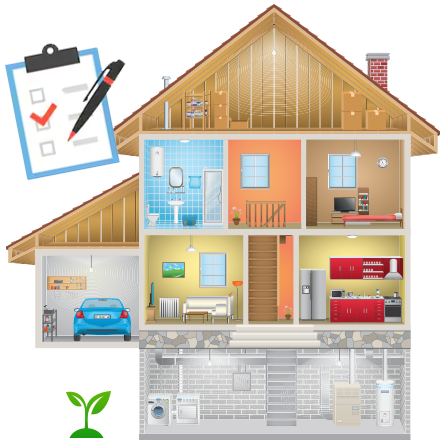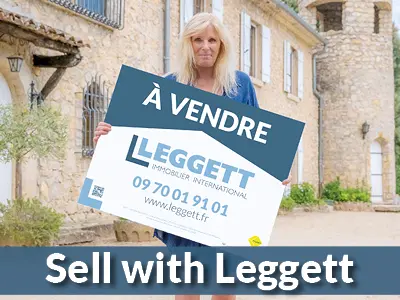Dossier de Diagnostic Technique

The Dossier de Diagnostic Technique (DDT) is a series of surveys that house sellers are required to provide to potential house buyers. The DDT isn’t a structural survey but instead covers a number of tests such as energy efficiency.
The Diagnostic Survey in France
It is obligatory for the home owner to have a series of surveys carried out on the property being sold. The results of the tests are provided to the notaire and attached to the Compromis de Vente document, the purchase and sales agreement, and thereafter the Acte de Vente, the deed of sale. The tests must be carried out by approved experts, and it is the responsibility of the notaire to ensure that the DDT is provided and meets required guidelines, for instance some aspects of the report are valid for 10 years, eg energy efficiency, some aspects for only six months, eg natural risks. The DDT aims to provide the home buyer with all the relevant facts for an informed decision.
We would advise that you shouldn’t sign the sale and purchase agreement without the survey report, though if there’s a delay in it being provided, you can request that completion be subject to specified conditions being met that are covered in the survey, for instance fosse septique being compliant.
Audit : mandatory from 1st April 2023 for single-ownership residential properties (i.e. your home) that are put up for sale and comprising of one or more dwellings rated F or G in a DPE. The regulations stipulate that the audit must be given to the potential buyer by your sales agent, during the first visit to the property, by any means, including electronically.
ERP : this document must be given to the potential buyer during the first visit and it is valid for 6 months. This applies to properties located in areas covered by a technological risk prevention plan or by a prescribed or approved plan for the prevention of foreseeable natural risks, in seismic zones or in zones with radon potential as defined by regulation.
What is covered in a French diagnostic survey?
This is a summary of some of the information required to be included in the DDT, your Leggett Immobilier agent will be happy to go through the detailed document supplied to you.
 Lead and Asbestos: Paint is tested for lead content on all properties built before 1949. All properties built before 1997 are tested for asbestos.
Lead and Asbestos: Paint is tested for lead content on all properties built before 1949. All properties built before 1997 are tested for asbestos. Gas (fixed only) and Electricity: If gas or electricity was installed or renewed in the property more than 15 years prior to the property being sold, electrical wiring must be checked and the gas installation reviewed.
Gas (fixed only) and Electricity: If gas or electricity was installed or renewed in the property more than 15 years prior to the property being sold, electrical wiring must be checked and the gas installation reviewed. Natural risk and parasites: All properties are evaluated for natural risks (for example flooding) and to ascertain if there are any risks posed by industry in the area. Homeowners who have had an insurance claim relating to a natural disaster must declare it in the report.
Natural risk and parasites: All properties are evaluated for natural risks (for example flooding) and to ascertain if there are any risks posed by industry in the area. Homeowners who have had an insurance claim relating to a natural disaster must declare it in the report. In areas known to have termite issues, properties must be tested for their presence as they can cause much damage.
In areas known to have termite issues, properties must be tested for their presence as they can cause much damage. Energy efficiency: Prior to the property being advertised, a test must be conducted to assess greenhouse gas emissions and energy efficiency of the property. The report will contain information about the efficient rating of the property such as annual energy consumption.
Energy efficiency: Prior to the property being advertised, a test must be conducted to assess greenhouse gas emissions and energy efficiency of the property. The report will contain information about the efficient rating of the property such as annual energy consumption. Surface area: Flats and apartments, or properties which are part of a shared building, are measured to confirm exactly what surface area is included in the sale.
Surface area: Flats and apartments, or properties which are part of a shared building, are measured to confirm exactly what surface area is included in the sale. Sewerage and septic tanks: Many rural properties in France are not connected to a mains drains system and instead have a ‘fosse septique’ (septic tank.)
Sewerage and septic tanks: Many rural properties in France are not connected to a mains drains system and instead have a ‘fosse septique’ (septic tank.) Where properties are connected to mains drains a certificate confirming this will be provided by the local Mairie.
Where properties are connected to mains drains a certificate confirming this will be provided by the local Mairie. If the septic tank does not conform to required guidelines, the purchaser of the property is obliged to rectify this within a year of purchasing the property. This can involve having a new system installed which can be very expensive, so, as with any issues that arise from the DDT, this may form part of the price negotiation with the seller.
If the septic tank does not conform to required guidelines, the purchaser of the property is obliged to rectify this within a year of purchasing the property. This can involve having a new system installed which can be very expensive, so, as with any issues that arise from the DDT, this may form part of the price negotiation with the seller. Radon: Since 1 July 2017, there has been a requirement to include information about the potential presence of radon gas in areas known to be at risk.
Radon: Since 1 July 2017, there has been a requirement to include information about the potential presence of radon gas in areas known to be at risk.
Most of these tests are for purchasers information only. However, some results may require immediate action, for instance if a test reveals termite issues, this must be reported to the Mairie.
You can find more information about the DDT on the website: Notaires de France
Building Surveys in France
Unlike the UK where a building survey forms part of the valuation of a property, in France these types of survey generally don’t take place
It is up to the home buyer to organise and pay for a building survey and as surveyors are few and far between in France, generally speaking you’ll need to appoint an engineer, architect or building professional to conduct the survey for you though some areas are covered by British building surveyors operating in France.
Planning permission in France
If you are buying land with a view to building your own home or you’re buying a property and want to make changes to it, particularly to the exterior or use of the building, the chances are that you will need planning permission.
Speak to your Leggett Immobilier agent about how to go about planning application and sourcing builders etc.













